9 start with N start with N
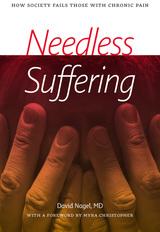

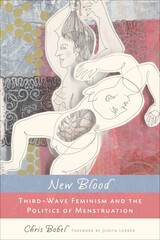
Through her critical ethnographic lens, Bobel focuses on debates central to feminist thought (including the utility of the category "gender") and challenges to building an inclusive feminist movement. Filled with personal narratives, playful visuals, and original humor, New Blood reveals middle-aged progressives communing in Red Tents, urban punks and artists "culture jamming" commercial menstrual products in their zines and sketch comedy, queer anarchists practicing DIY health care, African American health educators espousing "holistic womb health," and hopeful mothers refusing to pass on the shame to their pubescent daughters. With verve and conviction, Bobel illuminates today's feminism-on-the-ground--indisputably vibrant, contentious, and ever-dynamic.

Gay, straight, bisexual: how much does sexual orientation matter to a teenager’s mental health or sense of identity? In this down-to-earth book, filled with the voices of young people speaking for themselves, Ritch Savin-Williams argues that the standard image of gay youth presented by mental health researchers—as depressed, isolated, drug-dependent, even suicidal—may have been exaggerated even twenty years ago, and is far from accurate today.
The New Gay Teenager gives us a refreshing and frequently controversial introduction to confident, competent, upbeat teenagers with same-sex desires, who worry more about the chemistry test or their curfew than they do about their sexuality. What does “gay” mean, when some adolescents who have had sexual encounters with those of their own sex don’t consider themselves gay, when some who consider themselves gay have had sex with the opposite sex, and when many have never had sex at all? What counts as “having sex,” anyway? Teenagers (unlike social science researchers) are not especially interested in neatly categorizing their sexual orientation.
In fact, Savin-Williams learns, teenagers may think a lot about sex, but they don’t think that sexuality is the most important thing about them. And adults, he advises, shouldn’t think so either.
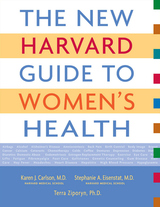
With the publication in 1996 of The Harvard Guide to Women's Health, women seeking answers to questions about their health had access to the combined expertise of physicians from three of the world's most prestigious medical institutions: Harvard Medical School, Massachusetts General Hospital, and Brigham and Women's Hospital. With complete information on women's health concerns, physical and behavioral, this A to Z reference quickly became a definitive resource, praised especially for its coverage of topics not previously considered under the umbrella of women's health. The New Harvard Guide to Women's Health reunites the authors to bring a valued health reference up to date for a new generation--and for those women who have come to rely on the Harvard Guide and are now wondering what to do about their health as they enter a new stage of life, asking questions like the following: I've been on hormone replacement therapy. Should I stop? How?
Could this rash be lupus?
I've been on the Pill. What is my risk for stroke?
Fat is bad, fat is good: What should I believe? And what's left to eat?
When does ordinary worry become chronic anxiety?
What screening tests do I need now?
In addition to revised recommendations reflecting the current medical thinking on menopause and hormone replacement therapy, the New Harvard Guide includes updated recommendations about cardiac health and heart disease--the #1 killer of women in the United States
entries reflecting recent advances in the understanding and treatment of autoimmune diseases
better coverage of health concerns throughout a woman's life span, from her first period to menopause and beyond, with a new entry on perimenopause
expanded nutritional recommendations, including a unique chart of the U.S. government's Daily Reference Intakes for micronutrients, broken down for teens and women whose needs may differ because they are pregnant, breastfeeding, or postmenopausal
updated information on over-the-counter medications, prescription drugs, procedures, screenings, and diagnostic tests
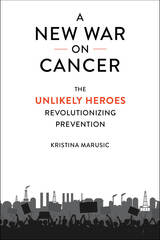
That was the question that motivated Kristina Marusic’s revelatory inquiry into cancer prevention. In searching for answers, she met remarkable doctors, scientists, and advocates who are upending our understanding of cancer and how to fight it. They recognize that we will never reduce cancer rates without ridding our lives of the chemicals that increasingly trigger this deadly disease.
Most never imagined this role for themselves. One scientist grew up without seeing examples of Indian-American women in the field, yet went on to make shocking discoveries about racial disparities in cancer risk. Another leader knew her calling was children’s health, but realized only later in her career that kids can be harmed by invisible pollutants at their daycares. Others uncovered surprising links between cancer and the everyday items that fill our homes and offices.
For these individuals, the fight has become personal. And it certainly is personal for Berry, a young woman whose battle with breast cancer is woven throughout these pages. Might Berry have dodged cancer had she not grown up in Oil City, Pennsylvania, in the shadow of refineries? There is no way to know for sure. But she is certain that, even with the best treatment available, her life was changed irrevocably by her diagnosis. Marusic shows that, collectively, we have the power to prevent many cases like Berry’s. The war on cancer is winnable—if we revolutionize the way we fight.
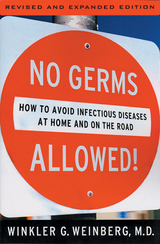
AIDS, tuberculosis, hepatitis, chickenpox, malaria, Lyme disease, salmonella, strep throat-no matter where you go or where you live, you are at risk from infectious disease. But there are ways you can protect yourself and your family!
The revised and expanded edition of this classic guide explains what you need to know to keep the germs away. From the infections of daily life, like the common cold and traveler's diarrhea, to dangerous, rare diseases such as plague, hantavirus, and invasive strep bacteria, to recent threats of mad cow disease, West Nile virus, SARS, and bioterrorism, this unique guide tells you:
- your chances of getting sick
- simple precautions you can take
- which vaccinations and shots are worthwhile
- how to avoid catching infections in the hospital
- special precautions to take if you are pregnant
- how to ward off infections even if you have chronic health problems or are HIV positive
- how to keep well while traveling
- what to eat-and not eat-on the road
- symptoms that signal trouble
- what illnesses you can get from bug bites and animals
- how to prevent sexually transmitted diseases
- who should get flu shots and why
- why you should see your doctor before you get sick
Dr. Winkler G. Weinberg lets you know what you need to worry about and what you don't.
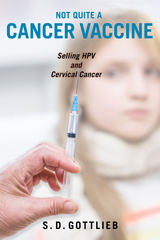
Prior to its market debut, Gardasil seemed to offer female empowerment, touting protection against HPV and its potential for cervical cancer. Gottlieb questions the marketing pitch’s vaunted promise and asks why vaccine marketing unnecessarily gendered the vaccine’s utility, undermining Gardasil’s benefit for men and women alike. This book demonstrates why in the ten years since Gardasil’s U.S. launch its low rates of public acceptance have their origins in the early days of the vaccine dissemination. Not Quite a Cancer Vaccine addresses the on-going expansion in U.S. healthcare of patients-as-consumers and the ubiquitous, and sometimes insidious, health marketing of large pharma.
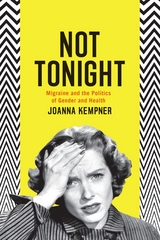
In Not Tonight, Joanna Kempner argues that this general dismissal of migraine can be traced back to the gendered social values embedded in the way we talk about, understand, and make policies for people in pain. Because the symptoms that accompany headache disorders—like head pain, visual auras, and sensitivity to sound—lack an objective marker of distress that can confirm their existence, doctors rely on the perceived moral character of their patients to gauge how serious their complaints are. Kempner shows how this problem plays out in the history of migraine, from nineteenth-century formulations of migraine as a disorder of upper-class intellectual men and hysterical women to the influential concept of “migraine personality” in the 1940s, in which women with migraine were described as uptight neurotics who withheld sex, to contemporary depictions of people with highly sensitive “migraine brains.” Not Tonight casts new light on how cultural beliefs about gender, pain, and the distinction between mind and body influence not only whose suffering we legitimate, but which remedies are marketed, how medicine is practiced, and how knowledge about disease is produced.
READERS
Browse our collection.
PUBLISHERS
See BiblioVault's publisher services.
STUDENT SERVICES
Files for college accessibility offices.
UChicago Accessibility Resources
home | accessibility | search | about | contact us
BiblioVault ® 2001 - 2024
The University of Chicago Press









